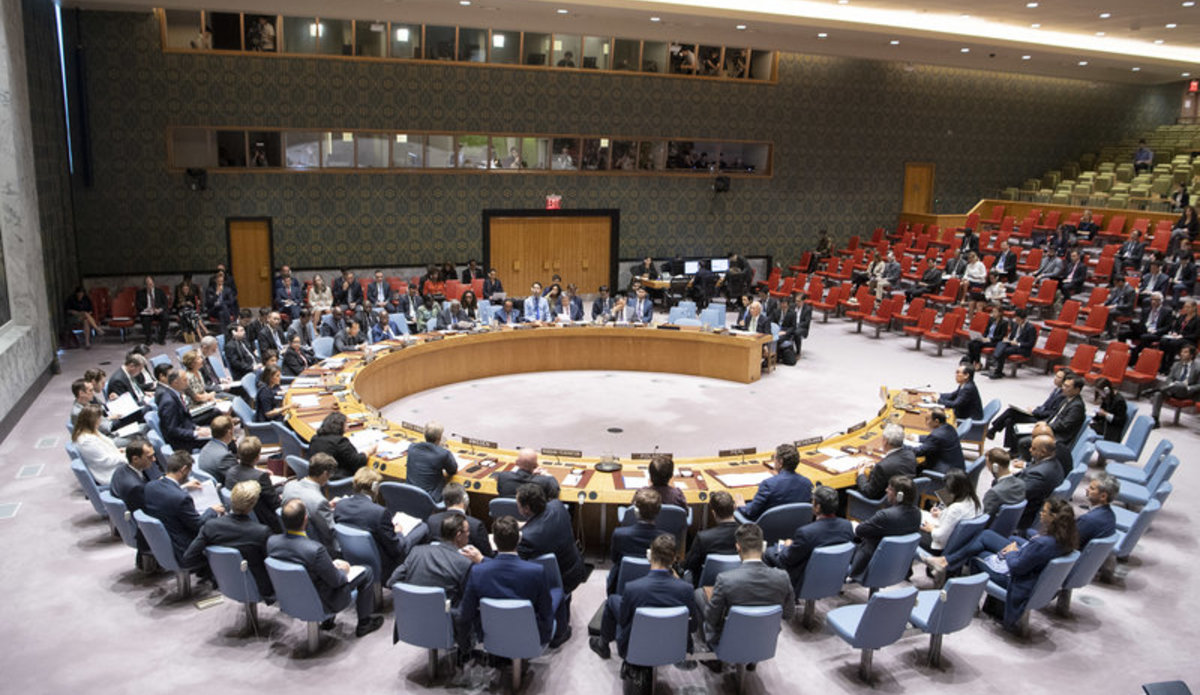Madam President, Members of the Security Council,
There have been several positive developments related to the nuclear weapon and ballistic missile programmes of the Democratic People’s Republic of Korea over recent months.
On 20 April, the DPRK announced an immediate halt to nuclear explosive testing and flight tests of certain longer-range ballistic missiles.
On 24 May, the DPRK reportedly dismantled its Punggye-ri nuclear test site. The DPRK also reportedly dismantled missile-related infrastructure at the Iha-Ri missile test stand in May and the Sohae Satellite Launching Site in July. International experts, however, were not invited to witness any of these activities.
In the meantime, there continue to be signs the DPRK is maintaining and developing its nuclear weapons and ballistic missile programmes. The International Atomic Energy Agency – remains unable to access the DPRK and verify the correctness and completeness of the DPRK’s declarations under its safeguards agreement. The Agency continues to monitor developments through commercially available satellite imagery where possible. In his regular report to the IAEA Board of Governors and General Conference submitted on 20 August, the IAEA Director General reported that the Agency had observed signatures consistent with the continued operation of the plutonium production reactor, radiochemical laboratory and alleged uranium enrichment facility at Yongbyon.
Madam President,
The Secretary-General has welcomed the commitment made by Chairman Kim Jong Un of the State Affairs Commission of the DPRK on 5 September to realize the denuclearization of the Korean Peninsula.
It is hoped that the positive developments, together with the important summits between the leaders of the DPRK and the Republic of Korea and between the DPRK and the United States, respectively, will contribute to an atmosphere conducive to advancing sustainable peace and complete and verifiable denuclearization on the Korean Peninsula in accordance with relevant Security Council resolutions.
Security Council unity helped create the opportunity to engage diplomatically. A year ago, the Korean Peninsula was the most tense and dangerous peace and security issue in the world. Today, progress has been made on building trust, reducing military tensions, and opening or re-opening channels of communications. A foundation has been established to make tangible progress on the core issues.
We encourage all Member States to support the parties in their diplomatic efforts, and to ensure the full implementation of the relevant Security Council resolutions.
Madam President,
I have been asked to brief today on the “United Nations Command” which is also referred to as the “Unified Command”.
Security Council resolution 84 of 7 July 1950 recommended that all Member States providing military forces and other assistance to the Republic of Korea should QUOTE - “make such forces and other assistance available to a unified command under the United States of America” - END QUOTE and requested the United States to designate the commander of such forces. The same resolution also authorised the unified command at its discretion to use the United Nations flag in the course of its operations concurrently with the flags of the various nations participating.
In its first report to the Security Council on the operation of the Command, the United States informed the Security Council that on 25 July 1950 the Unified Command was established and the Security Council first used the name “United Nations Command” in resolution 88 of 8 November 1950. Notwithstanding its name, the “United Nations Command” is not a United Nations operation or body, nor does it come under the command and control of the United Nations. Furthermore, it was not established as a subsidiary organ of the Security Council and is not funded through the United Nations budget.
As such, there are no reporting lines between the “United Nations Command” and the United Nations Secretariat.
Madam President,
The Secretary-General, during the upcoming high-level week of the United Nations General Assembly, will discuss how he and the United Nations system can further support the parties and how steps can be advanced towards sustainable peace, security, and complete and verifiable denuclearization of the Korean Peninsula, in accordance with Security Council resolutions. He hopes that the inter-Korean summit starting in a few hours, as well as the planned summit between the leaders of the United States and the DPRK, will further contribute to this process. Thank you.

